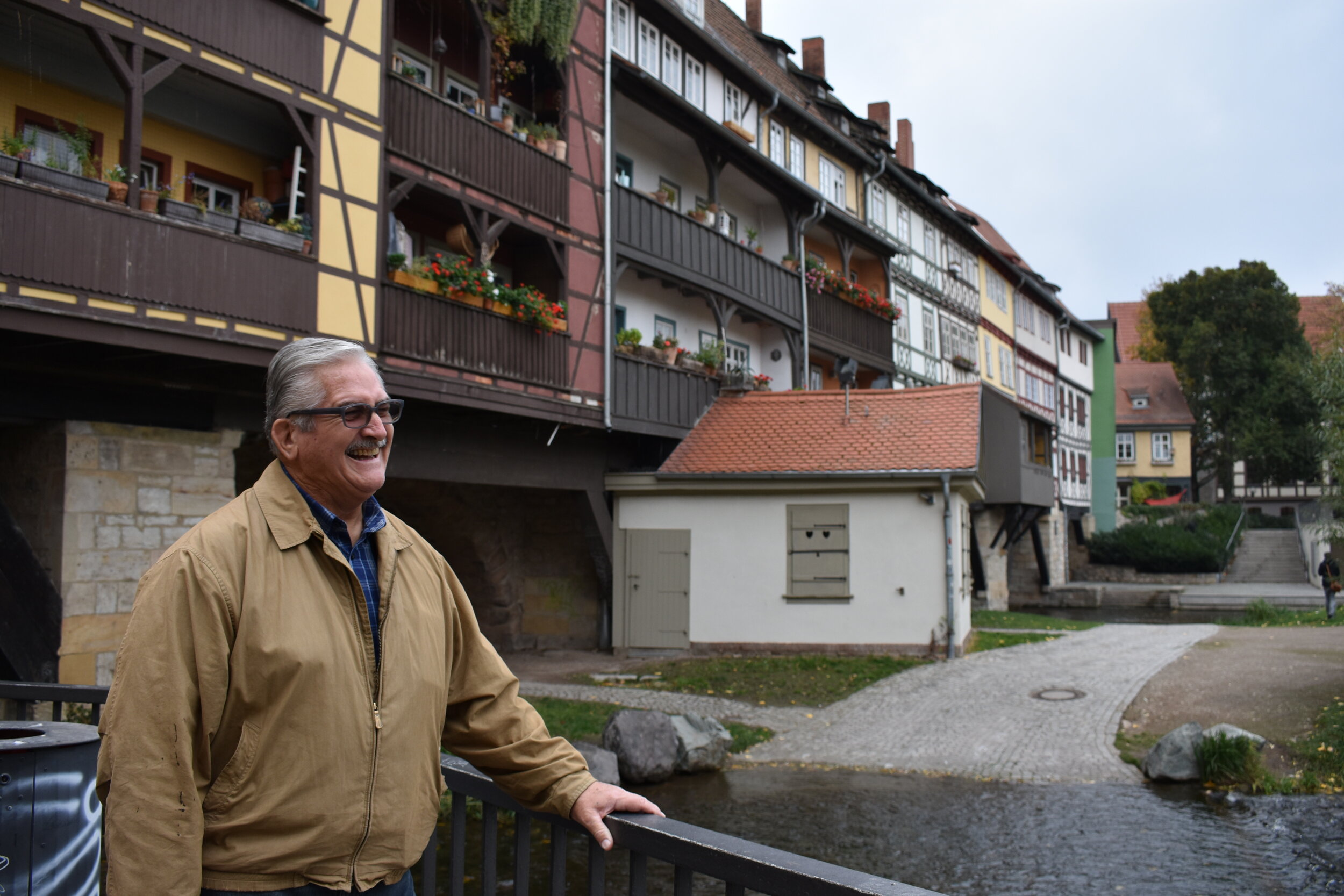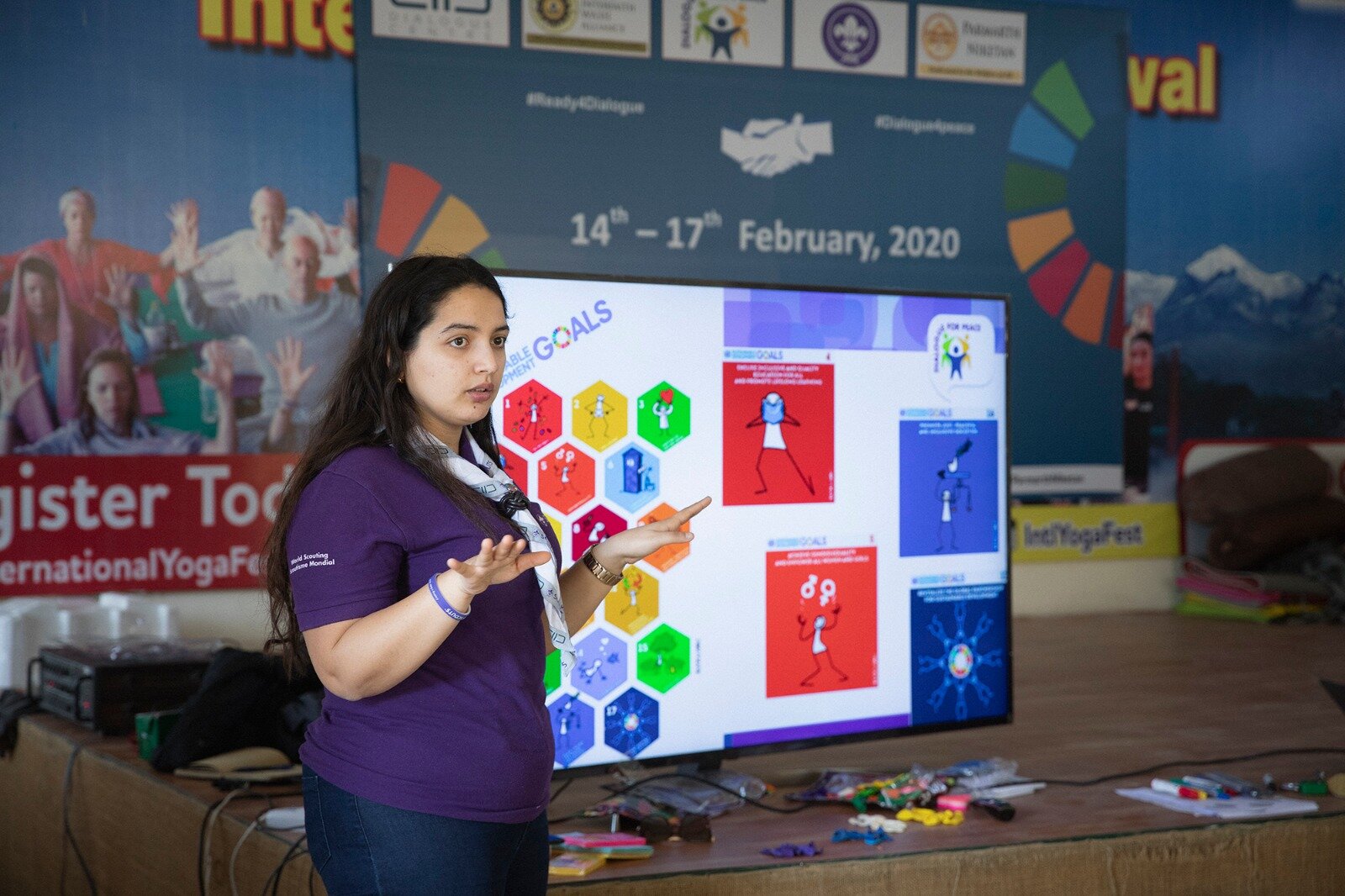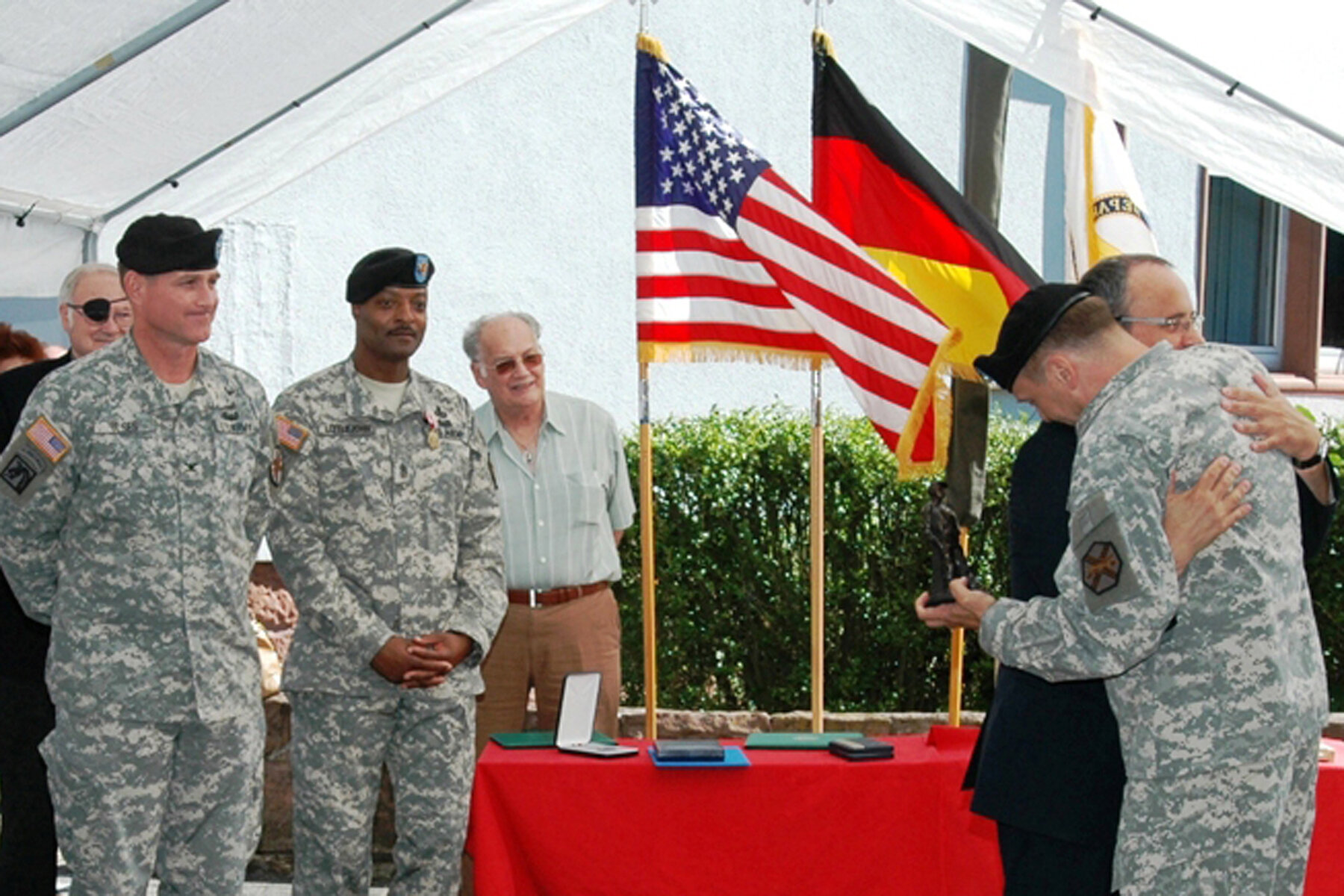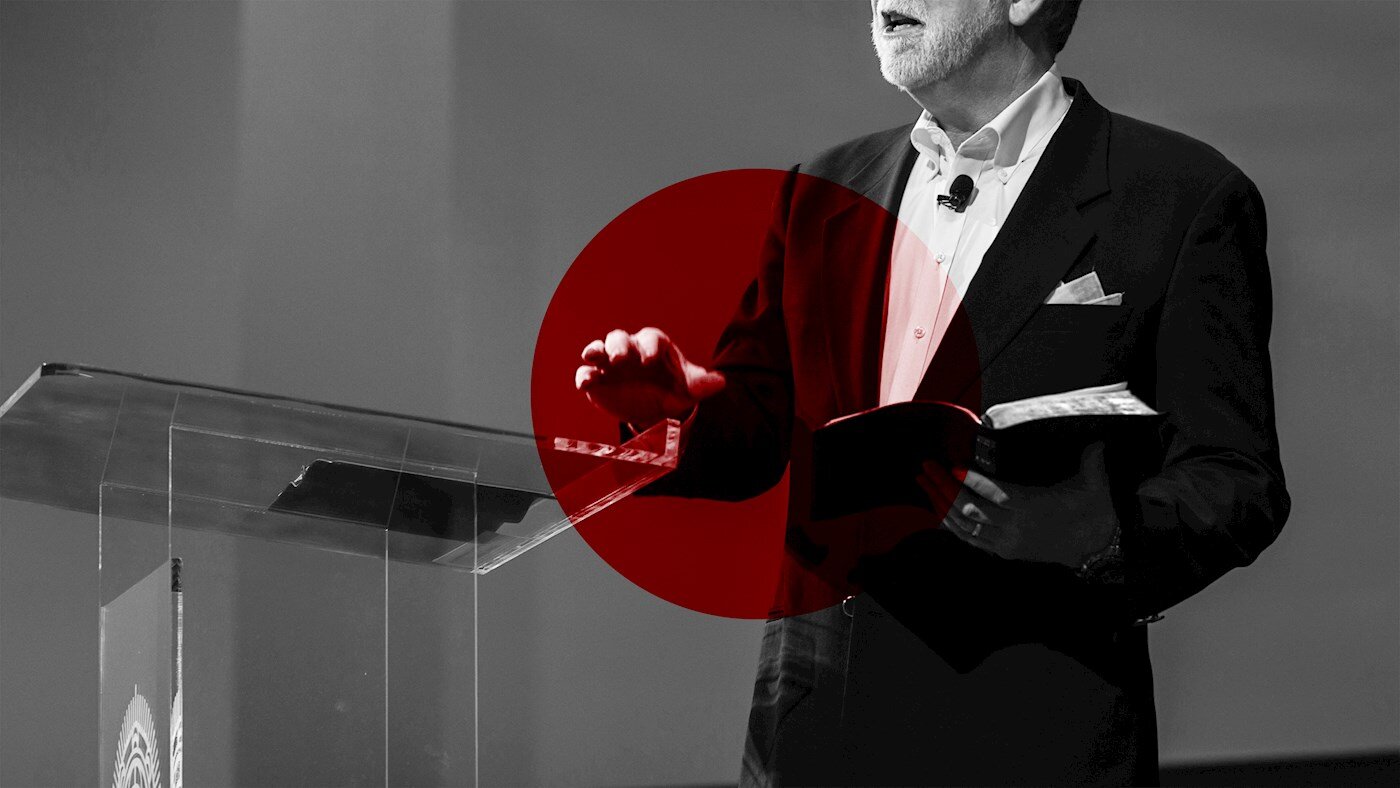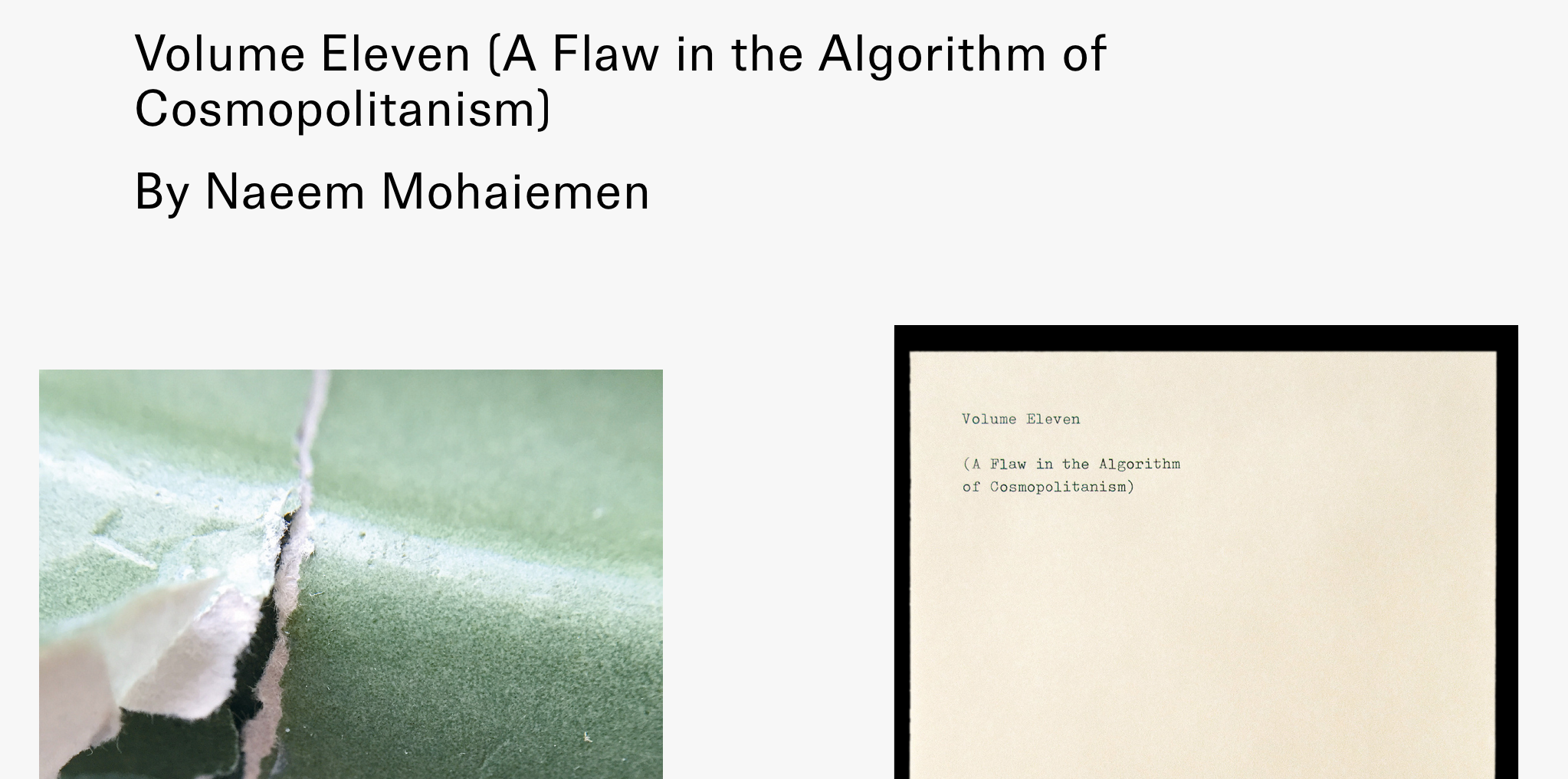In 2018, when I had the opportunity to go on a personal tour through LutherCountry, I decided to travel with my dad.
That decision was inspired.
The bratwursts on the market square in Weimar, the early morning mist settling around the base of the Wartburg Castle in Eisenach, the reverberating sound of the church bells from the Castle Church in Lutherstadt-Wittenberg — all of it was richer watching my father enjoy the tastes, sights, and sounds of LutherCountry for the first time.
At the end our journey, saying our goodbyes at Berlin’s Tegel airport, we tearfully said to one another, “we may never get the chance to do something like this together again.”
Little did we know that two years later, we would be feeling the weight of those words all the more. Since that trip, we’d been planning for both my parents to come in May 2020. The hotels were booked, the itinerary set, and the flights confirmed. You could almost smell the bratwurst that we were going to be chowing down on together.
Then, COVID-19 happened.
Your Personal Tour Through LutherCountry
In lieu of detailed itineraries, the plan for this trip is pretty straightforward:
September 10, 2020
1:00 PM EST // 10:00 AM PST
Register in advance for the meeting HERE.
The webinar will be held via Zoom. Participants need a working internet connection, the volumed turned on, and a comfortable chair to sit back in and experience LutherCountry virtually.
All-in-all the webinar will last around one hour, depending on the Q&A session.
After registering, you will receive a confirmation email containing information about joining the meeting.
Having planned for months to welcome my parents to our new home in Germany, we were devastated when we had to cancel everything. And I know, we are far from alone.
Many of you also canceled, postponed, or gave up on long-hoped-for trips to dream destinations. Many of you told me that you were planning to come to Germany this summer or were hoping to come to the Christmas markets this year.
COVID-19 upended those plans.
Feeling our pain, the two German states that make-up “LutherCountry” — Thuringia and Saxony-Anhalt — are coming to the rescue and bringing LutherCountry to our homes with, “Your personal tour through LutherCountry” on Thursday, September 10th.
The “Your personal tour through LutherCountry” webinar will be hosted by LutherCountry expert Mike Adams, CEO of TourComm Germany, who will guide participants to stops along the way, including Wittenberg, Eisleben, Erfurt, and the Wartburg.
Each city played a special role in Martin Luther’s life and the story of the Reformation.
That story will come alive with the help of tour guides such as Katerina von Bora in Wittenberg, my friend, and Texan-turned-German, Rev. Dr. Robert G. Moore, Rev. Scott Moore at the Augustinian Monastery in Erfurt, and special guests from the Wartburg and Eisleben.
My dad appreciating the historical significance in Martin Luther’s room at the Wartburg, Eisenach. (PHOTO: Ken Chitwood)
For those who have lost loved ones, whose livelihoods have been threatened, or whose lives are at risk on the frontlines, travel can be pretty far down on the priority list in the midst of the pandemic. In the end, traveling is a privilege.
And yet, people are starting to travel again — camping, taking road trips, or small weekend getaways with loved ones — and planning for dream-trips in the future when restrictions are lifted and life returns to a bit of normalcy.
“For many of us, travel is a vibrant part of life. It is part of what makes life worth ‘living.’”
As we all slowly come to the realization that the virus will be with us for quite some time and that we will have to adjust our lives accordingly, he role that travel plays in our lives will have to change too.
Planned trips may be delayed awhile. When we are finally able to travel again, those trips might look very different than before the pandemic.
With that in mind, LutherCountry is not only going to take you on a “personal tour,” but invite you to share your own questions and concerns. At the end of the webinar, participants will be invited by Mike Adams to ask anything they like about Luther and his homeland and how they might be able to plan their next trip to LutherCountry, whenever that may be.
The famous Martin Luther statue in Lutherstadt-Wittenberg (PHOTO: Ken Chitwood)
Maybe it will be to see the Oberammergau Passion Play, scheduled for May 2020 only to be postponed until May 2022, the same year as the 500th anniversary of Luther’s translation of the Bible. Or, perhaps it will be to celebrate the 500th wedding anniversary of Katherina von Bora and Martin Luther in Lutherstadt-Wittenberg in 2025.
Whatever your dreams, the “personal tour through LutherCountry” webinar might be the perfect place to start your planning.
